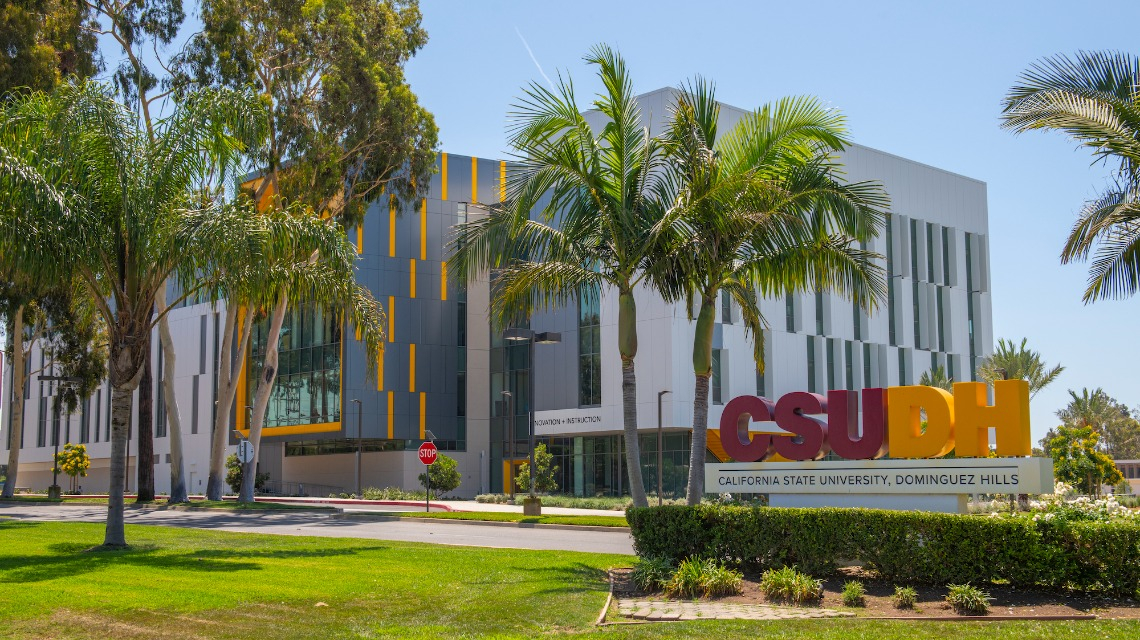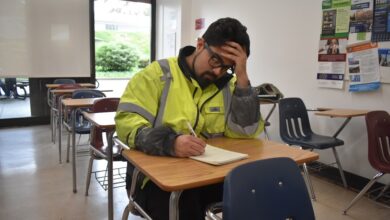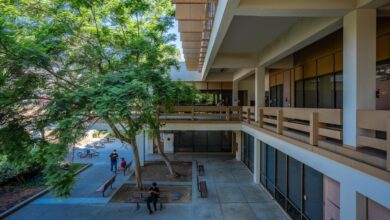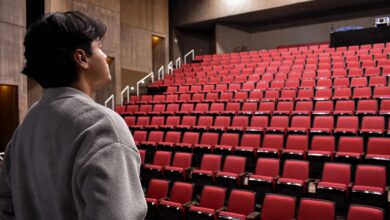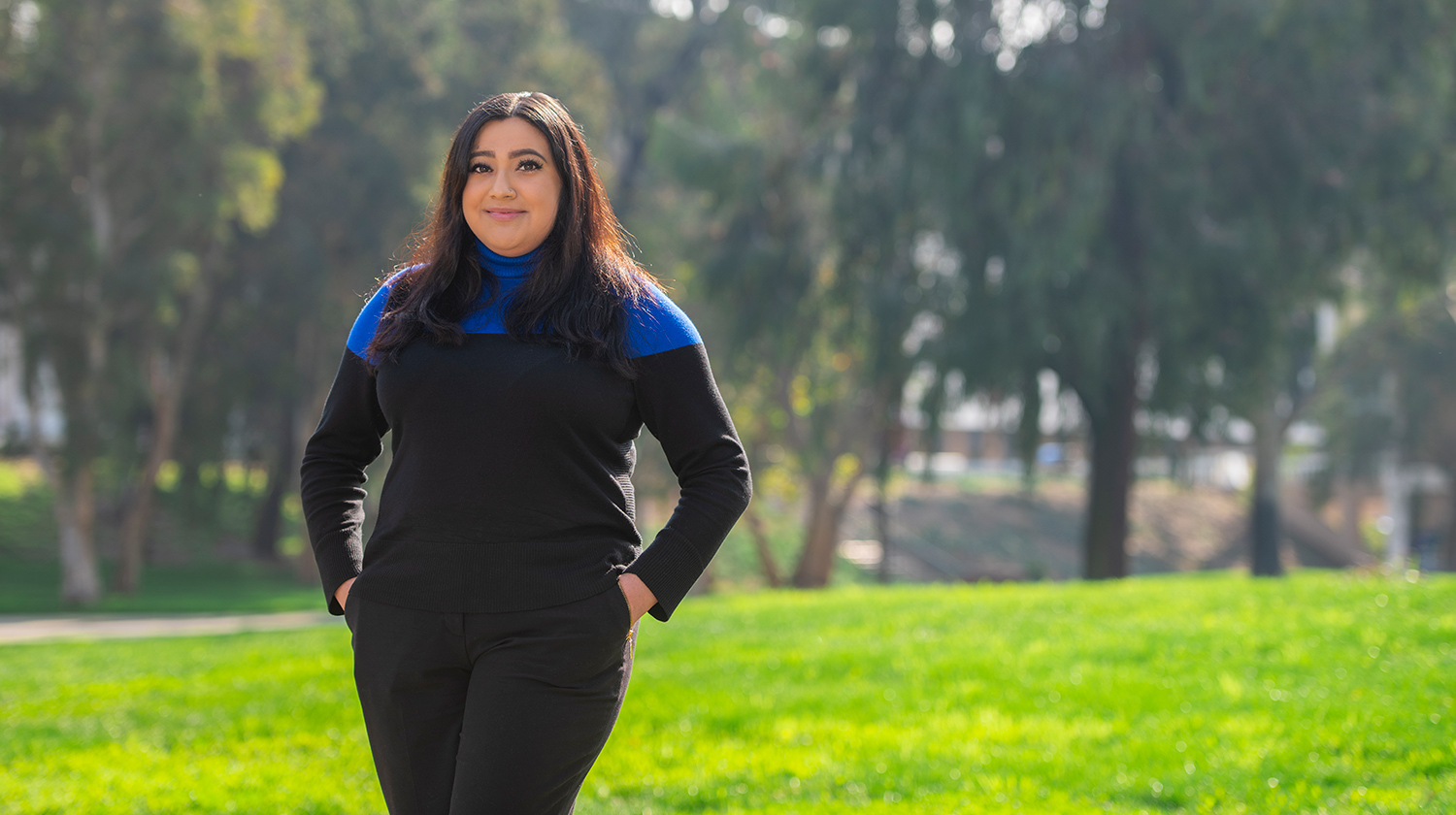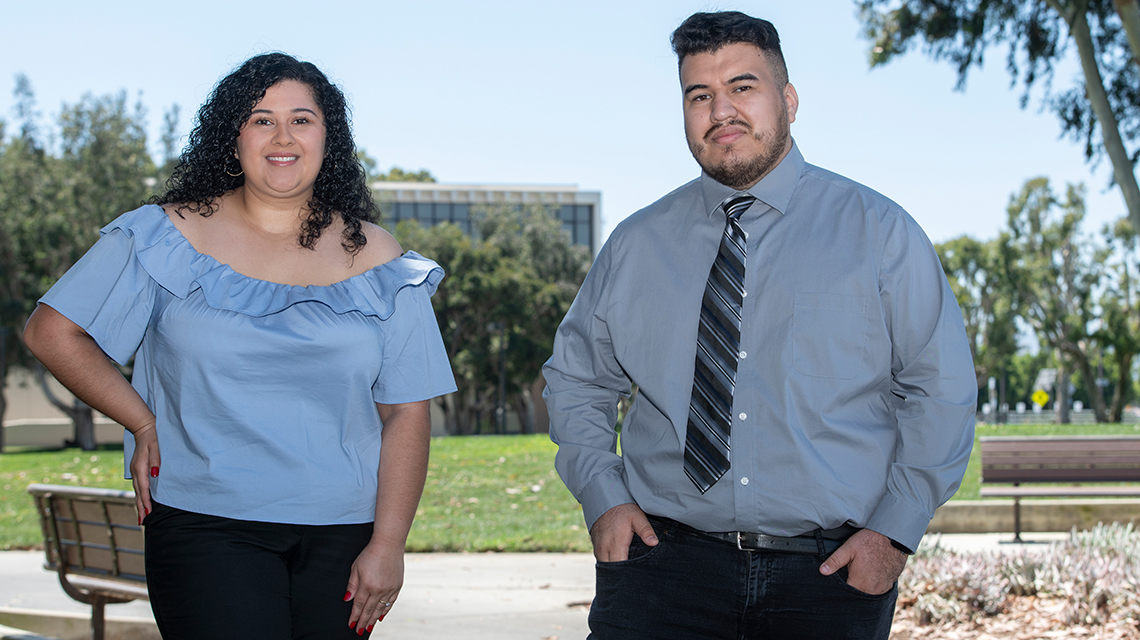
Jennifer Correa and Cesar Ovando have taken slightly different paths on their journey to CSUDH, but they have both ended up at the same place: the two Toro students were recently named recipients of the prestigious 2021 CSU Sally Casanova Pre-Doctoral Scholarship. The scholarship program is designed to increase diversity within the pool of university faculty by supporting the doctoral aspirations of students in the CSU.
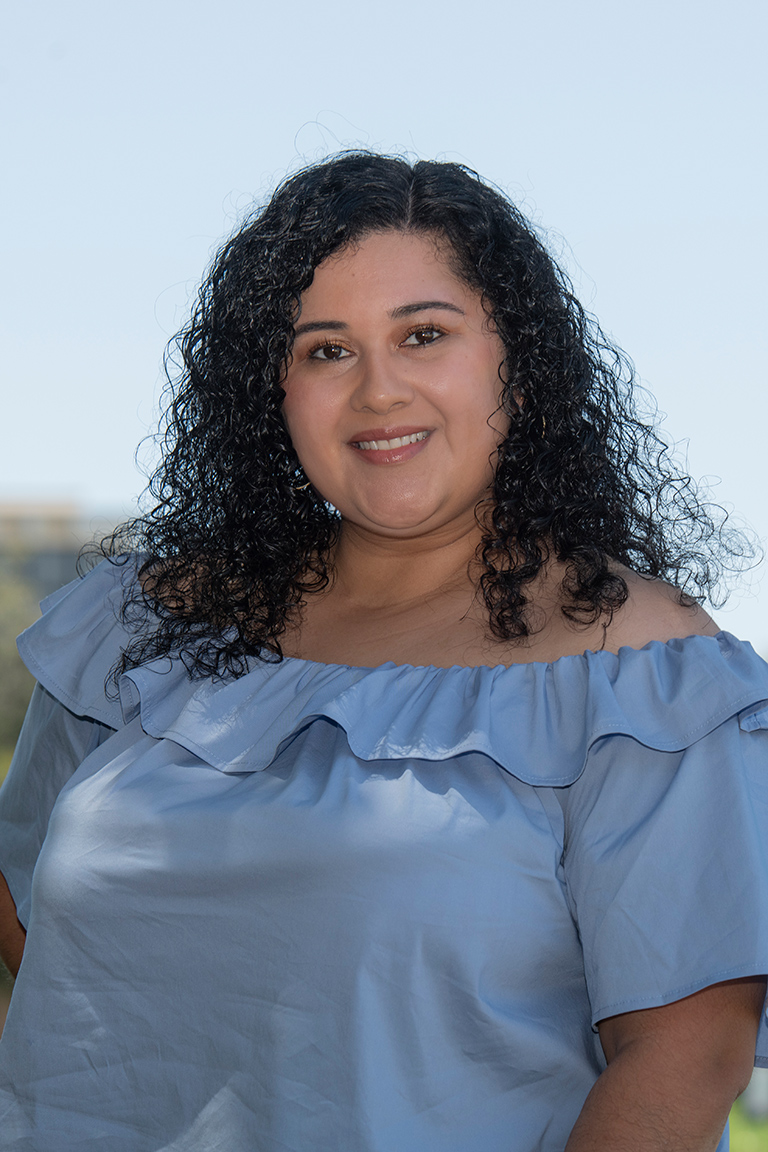
Jennifer Correa
Correa was born and raised in the historically underserved area of Wilmington, Calif., and started her college journey at local Los Angeles Harbor College. She then went on to earn a bachelor’s degree in psychology and social behavior at the University of California, Irvine (UCI). Correa spent a year as a substitute teacher before returning to school at CSUDH to work on her master’s degree in clinical psychology.
Seeing the inequalities in her neighborhood growing up made Correa want to give back to her own community. “I see how necessary it is to provide quality resources, help, and support for these underserved communities,” she says. “I want to succeed and get as far as I can in life, so I can also give back and help those that I know need it.”
Correa became fascinated with psychology while attending community college, when she was still unsure of the career path she wanted to pursue. “Every day, I would leave my psychology class and think ‘Wow, this really explains why people act the way they do,’ ” says Correa. “I felt like psychology was unlocking the secrets of human behavior, learning how and why people behave in certain ways.
“I feel that if you know the ‘why’ behind something, you can figure out how to solve that problem and make it better. You can tailor your solutions to different people, because not everybody responds the same way to the exact same thing.”
Correa’s research focuses on the intersection between culture and socioeconomic status within adolescents, and how these factors affect psychological wellness and resilience. Ultimately, she would like to help create new preventative methods and strategies that can be used to diagnose mental health issues early in adolescence–methods that better take into consideration the culture and socioeconomic status of the children.
Her experiences as a first-generation college student have shaped her outlook and goals. After earning her Ph.D., Correa would like to pursue a career as a professor or university administrator. “Many students from underserved communities are first-generation students, and those are the ones that need the most help, because they don’t have anybody they can look up to and ask. I want to be that person, someone who will actively help with student involvement, engagement, outreach, and retention.”
Correa says she’s still “a little in shock” about being winning the award. “It’s such a big help,” she says. “The money they’re giving me, the chances to be able to go to conferences and join honor societies–I would not be able to do any of that without being named a Sally Casanova Scholar. This award is going to help me fulfill my dreams. That sounds really big, but that’s how I feel.”
Correa’s faculty advisor, CSUDH Assistant Professor of Psychology Amy Sewart adds, “Jennifer is an exceptional student and scholar, and I’m truly honored to serve as her mentor. I speak for all of us in the Psychology Department when I say I’m beyond proud of her. This accomplishment highlights Jennifer’s unyielding dedication to equity and justice within psychological science.”
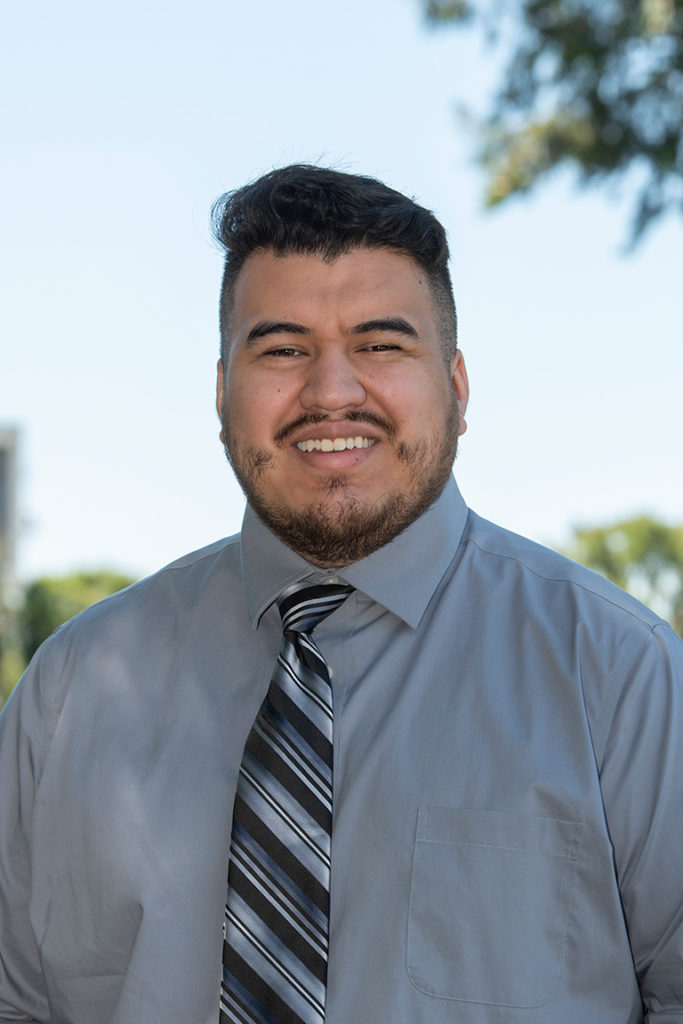
Cesar Ovando
Ovando, the son of Guatemalan immigrants and another first-generation college student, was born and raised in Long Beach. He went straight to CSUDH after graduating from Millikan High School, and is currently pursuing a bachelor’s degree in history, with a focus on social science education. Ovando is scheduled to graduate in Spring 2022.
He credits his parents with fostering his love of learning. “They’ve always said that education was such an important factor,” says Ovando. “They grew up with some education, but by the time they were teenagers, they weren’t able to continue in school because it was so expensive in Guatemala. They always prioritized education.”
Ovando’s research focuses on the colonial history of his parents’ native Guatemala, a branch of history that has largely been neglected by scholars of Latin American colonialism. He found that even his parents had distorted notions of this period in their homeland’s history. “I asked them what they knew about colonial history, and they could only tell me about the conquest from a Spanish perspective,” says Ovando.
Upon delving into his research, “I found a number of sources that actually showed indigenous perspectives–their side of the story of Guatemalan history. I went to my parents and showed them what I found from these sources, and they actually got to learn something from my research, as well!”
Ovando plans to continue his education by pursuing a Ph.D., then would like to become a professor of colonial history. He is a proponent of the New Philology, a school of thought that examines colonial indigenous language sources, giving them more agency and promoting their perspectives. As Ovando puts it, “Who better to produce a colonial Guatemalan narrative than a Guatemalan?”
For Ovando, winning the Sally Casanova Scholarship means more than just money to continue his education. “I never even thought of graduate school before,” he says. “Because of the money, but also because of Imposter Syndrome. Was I even worthy of grad school? Now that I’m being paid to do research and present it, I’m thinking, ‘You know what, I’m actually worth it.’ ”
Kenneth Seligson, assistant professor of anthropology and Ovando’s faculty advisor for the scholarship program, agrees. “Cesar exemplifies the well-rounded Toro,” says Seligson. “He draws on frameworks from across the humanities, as well as the natural and behavioral sciences, for his research projects on Guatemalan history and culture. All of his advisors in the history and anthropology departments are so proud and excited that the Sally Casanova program is recognizing his talents and hard work.”
As Sally Casanova scholars, Correa and Ovando will each receive a $3,000 grant and have a variety of advantages and unique opportunities to do related research that will prepare them to succeed in a doctoral program after earning their graduate degrees at CSUDH. The scholarship is available to CSU students with exceptional academic records who come from disadvantaged backgrounds.
Correa, Ovando, and the other Sally Casanova scholars throughout the CSU system will also receive funding to visit doctoral-granting institutions where they are considering applying; travel to a national symposium or professional meeting in their chosen fields; membership in professional organizations; and free graduate school applications, test fees, and journal subscriptions.


